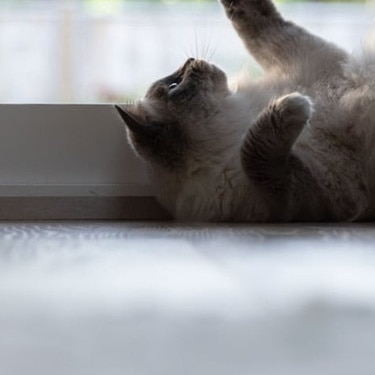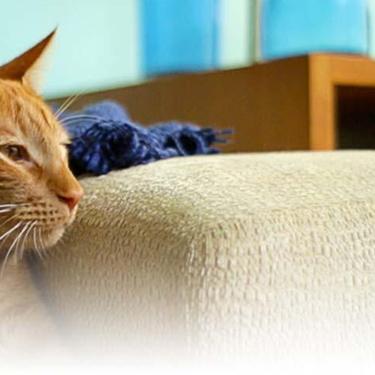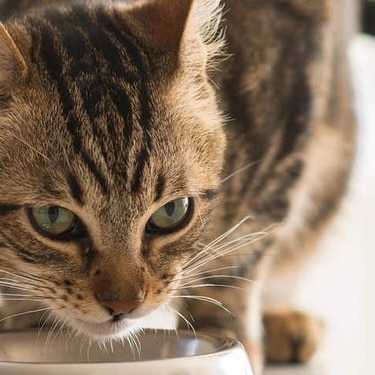
-
Find the right food for your petTake this quiz to see which food may be the best for your furry friend.Find the right food for your petTake this quiz to see which food may be the best for your furry friend.Featured products
 Mature Adult Dog Food
Mature Adult Dog FoodHill's Science Plan Mature Adult Multipack Wet Dog Food with Chicken & Beef are complete premium pet foods for mature adult dogs from 7 years. Your dog will love these deliciously smooth and savoury minced loaves, formulated to deliver the appropriate amount of energy to support the needs of adult dogs.
Shop Now Puppy Food
Puppy FoodHill's Science Plan Puppy Multipack Wet Dog Food with Chicken & Beef are complete premium pet foods for growing puppies from weaning until 1 year old and for pregnant and nursing dogs. Your puppy will love these deliciously smooth and savoury minced loaves, formulated for balanced nutrition and overall health.
Shop Now Adult Wet Dog Food with Beef
Adult Wet Dog Food with BeefHill's Science Plan Adult Multipack Wet Dog Food with Chicken, Beef & Turkey are complete premium pet foods for adult dogs from 1 year. Your dog will love these deliciously smooth and savoury minced loaves, formulated for balanced nutrition and overall health.
Shop NowFeatured products Mature Adult Wet Cat Food with Chicken
Mature Adult Wet Cat Food with Chicken
Tender chicken chunks in gravy for mature adult cats. Made with easy-to-digest ingredients, high-quality protein for lean muscle maintenance and antioxidant vitamins C+E for optimal health.
Shop Now Adult Multipack Wet Cat Food with Beef, Ocean Fish & Chicken
Adult Multipack Wet Cat Food with Beef, Ocean Fish & ChickenTender chunks in gravy for cats, with high-quality protein to maintain lean muscle. With vitamin E and omega-3s & -6s for healthy skin and balanced minerals to support healthy vital organs.
Shop Now Light Adult Multipack Wet Cat Food with Chicken & Ocean Fish
Light Adult Multipack Wet Cat Food with Chicken & Ocean FishTender chicken chunks in gravy for cats, with L-carnitine and fewer calories for ideal weight management. Packed with high-quality protein, omega-6s, and vitamin E for shiny fur and healthy skin.
Shop Now -
Dog
- Dog Tips & Articles
-
Health Category
- Weight
- Food & Environmental Sensitivities
- Urinary
- Digestive
- Joint
- Kidney
-
Life Stage
- Puppy Nutrition
- Adult Nutrition
- Senior Nutrition
Cat- Cat Tips & Articles
-
Health Category
- Weight
- Skin & Food Sensitivities
- Urinary
- Digestive
- Kidney
-
Life Stage
- Kitten Nutrition
- Adult Nutrition
Featured articles Show some love with wet foods: a great choice for pets with health issues
Show some love with wet foods: a great choice for pets with health issuesShow some love with wet foods: a great choice for pets with health issues.
Read More The Right Diet For Your Pet
The Right Diet For Your PetIn people, the right diet is very important. If you are eating the wrong way for your metabolism, activity level, age and lifestyle you could end up with health issues.
Read More The Incredible Science Behind Your Pet's Microbiome
The Incredible Science Behind Your Pet's MicrobiomeLearn what your pet's microbiome is, how it contributes to your pet's gut and overall health, and why nutrition is important in maintaining healthy microbiomes.
Read More -


A rivalry spanning thousands of years, the power struggle between cats and mice shows no sign of easing up. What is it that cats find so appealing about mice? And what do you do if your cat drops their rodent trophy on your pillow?
Humans may have domesticated cats as long as 4,000 years ago, according to National Geographic. At some point, someone must have noticed, that their cat companion was good at catching mice and realised the benefit of having cats around (besides their cute companionship). Soon, cats became hired hands, paid in the form of food and shelter by farmers and others who needed to keep rodents away. It's been a game of cat and mouse ever since.
Why Cats Are Attracted to Mice
Simply stated, mice are an easy target. Much like birds, another favourite feline prey, mice are the perfect size for little paws and don't put up much of a fight. Cats are pouncers who love to stalk their target and wear them down. They're also attracted to a mouse's flittering, skittering, unpredictable movement. A mouse treat satiates a cat's craving for meat protein plus their desire for hunting.
My Cat Ate a Mouse! Now What?
When a cat catches a mouse, they can make quite a mess. When cleaning up the crime scene, wear gloves to protect against parasites. The Centers for Disease Control and Prevention recommends treating the affected area with disinfectant or a mixture of bleach and water and, if applicable, washing bedding in hot water.



Tasty Tips
Are There Health Concerns?
It is possible for your cat to contract an illness from eating a mouse. According to the Animal Medical Center, mice can be infected with roundworms, which they can then pass on to your cat. Mice can also carry the parasite that causes toxoplasmosis, which can transfer to cats and then transfer to humans via cat poo.
Cats who contract toxoplasmosis don't exhibit signs of the illness, note researchers at the University of California, Davis, School of Veterinary Medicine. However, your cat's veterinarian can test their faecal matter to help rule out other infections, like roundworm.
Humans may not show signs of toxoplasmosis either, but if your cat has hunted recently and you have unexplained symptoms, such as a fever, muscle aches, a sore throat or vision problems, see your doctor right away. Thankfully, toxoplasmosis in humans and cats is treatable.
On the Hunt
Indoor cats are less likely to catch a mouse than outdoor cats, but it can happen. Your feline friend is hardwired for hunting, which is why your kitty sometimes attacks random objects like wads of paper or your feet.
Indulge your cat's predatory instinct with non-living prey. A mouse toy is a tried-and-true replacement, as is a battery-operated mouse that mimics the movements of the real thing. You can also make DIY cat toys with objects from around the house.
Cats and mice may never live in harmony, but you can help the situation by keeping your kitty indoors, supplying them with toys and engaging them in play. And if your cat ever does get hold of a mouse, it's always a good idea to have them checked by the vet.


Christine O'Brien is a writer, mom, and long-time cat parent whose two Russian Blues rule the house. Her work also appears in Care.com, What to Expect, and Fit Pregnancy, where she writes about pets, pregnancy, and family life. Find and follow her on Instagram and Twitter @brovelliobrien.
Related products


Tender chicken chunks in gravy for cats, with L-carnitine and fewer calories for ideal weight management. Packed with high-quality protein, omega-6s, and vitamin E for shiny fur and healthy skin.

Tender chunks in gravy for cats, with high-quality protein to maintain lean muscle. With vitamin E and omega-3s & -6s for healthy skin and balanced minerals to support healthy vital organs.

Tender chicken chunks in gravy for mature adult cats. Made with easy-to-digest ingredients, high-quality protein for lean muscle maintenance and antioxidant vitamins C+E for optimal health.
Related articles

Feeding time can be a wonderful bonding opportunity for you and your cat. Find out how to make the most of it and create a healthy habit with HIll's Pet UK.

Find out about how you can support your cat's digestion to boost overall health. Diet is key to a long and happy life for your cat, so discover what you can do.

Find the right Hill

Discover what you can do to spot and support a sensitive cat stomach. See what routines and food you can implement to help your cat be happy and healthy.

Put your cat on a diet without them knowing
Our low calorie formula helps you control your cat's weight. It's packed with high-quality protein for building lean muscles, and made with purposeful ingredients for a flavourful, nutritious meal. Clinically proven antioxidants, Vitamin C+E, help promote a healthy immune system.
Put your cat on a diet without them knowing
Our low calorie formula helps you control your cat's weight. It's packed with high-quality protein for building lean muscles, and made with purposeful ingredients for a flavourful, nutritious meal. Clinically proven antioxidants, Vitamin C+E, help promote a healthy immune system.

